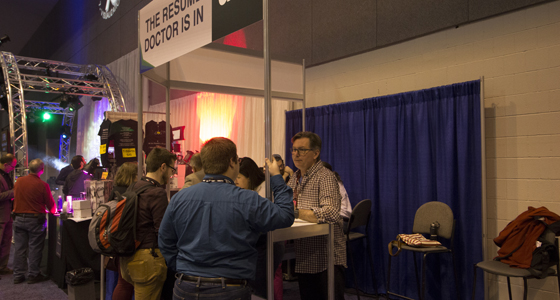Q: Dr. Ima, what will my prospective employer be looking for during my interview?
A: Interviewers are quick to pass judgment on your candidacy based on their first impression of you. While much of this is out of your control, there are a few things that you can do to increase your impact and better your chances.
- Make direct eye contact. When you meet with someone, looking into their eyes is a most powerful human connection. Don’t be creepy and just stare, but look them in the eyes as you smile when meeting them. Always try to be at the same level, so if they are seated, bend down to get your head closer to their level. If you are seated when introduced, always stand up, a physical sign of respect that increases your ability to connect.
- Start your conversation with some shared frame of reference. If meeting at a conference, speak about conference activities; at theatre, speak about a most recent production or the current production project; if in bar, restaurant, or other neutral location, ask them about how their day is going. Avoid any comments about politics, religion, or the current state-of-affairs in the industry.
- Share your curiosity about and enthusiasm for the interview. Express these two qualities by listening with great care and by asking some specific questions of your own. Even if after initial pleasantries you simple ask for them to tell you about the opportunity in their own words, with a follow-up or two that asks them to “unpackage” what they are sharing. Such inquiry telegraphs both interest and engagement.
- First impressions are also made on the phone, so be prepared for the phone conversations that are part of the interview process. Have the interviewer’s name written down in front of you, and from your research, have a printed photo of the interviewer in front of you as well. Smiling as you talk and picturing the person to whom you are speaking increases your positive energy and can be read across the miles.
- If your first impression is to be an e-mail, apply more formal written correspondence standards. Treat the e-mail more like a letter, with a clear salutation, a focused body, and a direct request for further action. No short-hand, abbreviations, emoticons, and avoid jargon. Future e-mail contact can be more relaxed in tone, but for the best first impression the more formal is better.
